Invitation to the anniversary
COMMEMORATIVE CEREMONIES
28-29 and 30 April 2023
We remember what has happened
out of respect for the victims
and for the future of our children.

COMMEMORATIVE CEREMONIES
28-29 and 30 April 2023

The Comité International de Dachau (CID) will again award the Stanislav Zámečník Study Prize in 2023. The CID's mission is to preserve the memory of the crimes committed in the Dachau concentration camp; it is an international association and consists of the organisations of former Dachau concentration camp inmates from 25 countries and their families. The Comité International de Dachau endows the study prize in memory of the victims of the National Socialist concentration and extermination camps, especially Dachau Concentration Camp. The prize has been awarded every two years since 2017; 6,000 euros are available for it.
Stanislav Zámečník (1922-2011) was a Czech survivor of Dachau concentration camp and historian. During his imprisonment in Dachau from 1941 to 1944, he was involved in activities of the camp's internal resistance. After liberation and his training as a historian, he worked on the first exhibition of the Dachau Concentration Camp Memorial, which opened in 1965. He was banned from working after the suppression of the Prague Spring because of his support for it. It was not until 1989 that he was able to work unhindered as a scientist again. Zámečník published important articles in the "Dachauer Heften". In 2002, his monograph "Das war Dachau" (That was Dachau), which is still authoritative today, was published; it is a standard work and has been translated into many languages. As a member of the scientific advisory board, he exerted a formative influence on the redesign of the Dachau Concentration Camp Memorial.
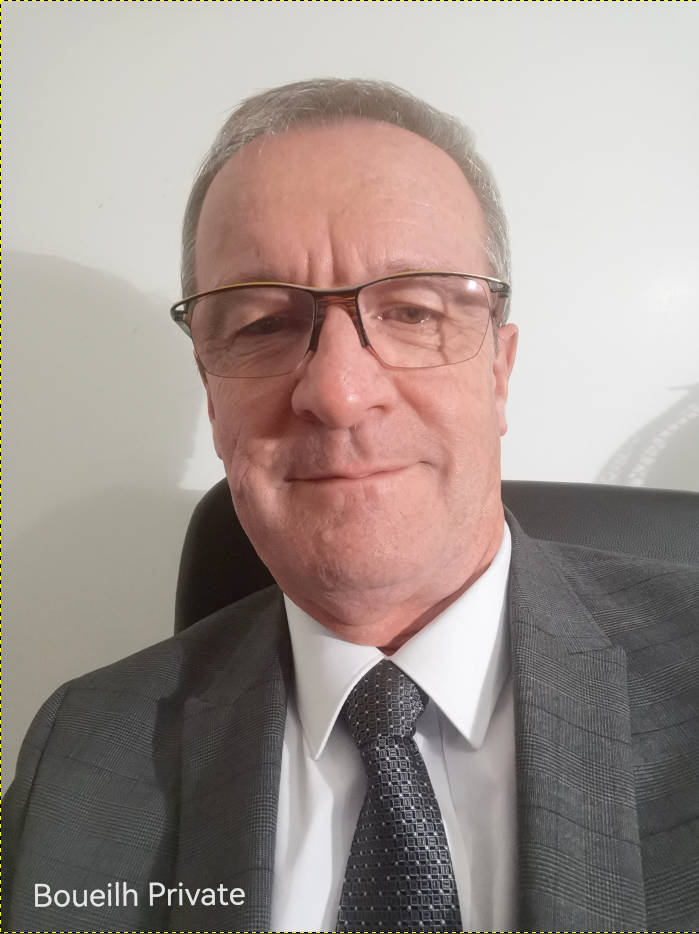
After his election on 19 November 2022 as the future president of the CID, Dominique Boueilh took up his duties as president on 25 February 2023. He succeeds General Jean-Michel Thomas, whose essential action within the CID during his two mandates was highly recognised and praised.
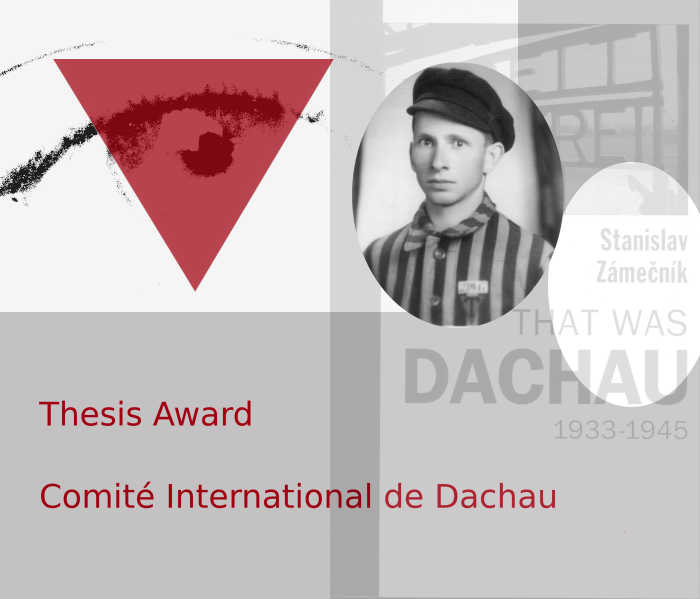
" Markus Wegewitz's study sheds light on the history of antifascism, which is closely intertwined with the course set by the extreme 20th century. Antifascism is a dispositive of experience, a way of life and a political position at the same time. The study, which was written as a dissertation at the Friedrich Schiller University in Jena, offers a historical longitudinal section from the emergence of organised antifascism after the end of the First World War to the global 1960s. In the process, central ideas, forms of organisation, patterns of memory and components of political culture are elaborated."
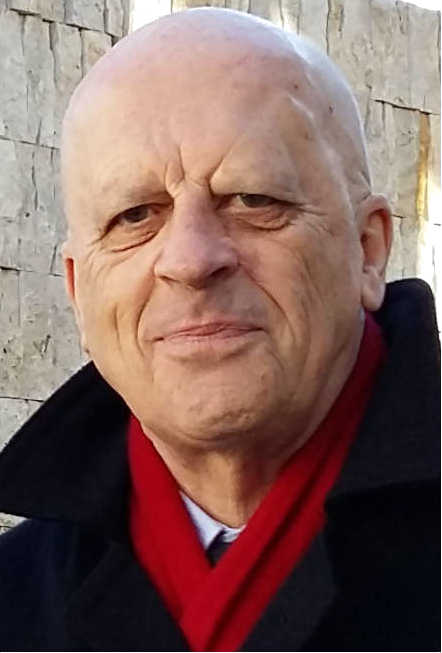
Ladies and Gentlemen,
For CID, the International Dachau Committee, founded with the aim of unity and peace at the liberation of the camp 77 years ago, this roll call square of the former concentration camp is a place for reflection and remembrance. Not a podium for political statements.
However, it is impossible not to react and express our painful sympathy and bewilderment in the face of aggression against Ukraine and violations of international law.
It is not my task to fathom the numerous and complex causes of this war. But when it is called a mere "military operation" and its justification is the "denazification" of a part of Europe, it is our duty to express our deep indignation precisely from this place.
Because the use of the word "denazification" is an inadmissible distortion and an intolerable insult to all the victims of Nazism and the concentration camp system of which Dachau concentration camp was the model.
The survivors who are present today are here to bear witness. And the reality is that in addition to Soviet prisoners of war, over 4000 of whom were murdered in Hebertshausen, prisoners of Ukrainian origin were also registered in Dachau concentration camp along with the Russians.
According to estimates of the archive of the concentration camp memorial, of the 25,400 people who were imprisoned as Soviet citizens, at least 65% probably as many as 75% were residents of the Ukrainian Soviet Republic. They were all marked with the same R on their striped clothing.
Let us remember this common suffering, common martyrdom, and common struggle against Nazism until its extermination.
The call for "never again" and for an end to wars was a deep longing cried out by concentration camp survivors when they were liberated.
Despite incomplete progress, as can be seen, this goal remains ever relevant and inevitable for the whole world. The sad events we are witnessing remind some that peace is a precarious, unstable equilibrium that is not achieved once and for all, but must be pursued relentlessly.
How can we contribute in a modest way?
First of all, by seeking truth and objectivity By avoiding, for example, to reject dissenting opinions through rash instrumentalizations and simplifications.
The "reductio ad hitlerum," in which an opponent's arguments are disqualified by systematically associating them with Adolf Hitler, is common but unworthy.
National Socialism must not be trivialized. This includes stopping the careless use of the term " fascism " and at the same time calling any totalitarianism by its name.
Above all, however, there is a task that concerns us all and in which we can all participate. It is the mission initiated by the International Dachau Committee and now carried out by the Dachau Memorial and numerous associations and communities.
It is a duty to inform, to teach, to explain, and to tirelessly make our common history, with its many ethnic, religious, national, economic and linguistic aspects, understandable.
This work of mediation is an essential task, an indispensable step that must be continued among all, young people as well as visitors from all over the world, in order to help build peace.
For this task, the efforts and steps taken by the Bavarian Memorials Foundation and the Bavarian state government for the redesign of the Dachau Concentration Camp Memorial are encouraging and promising. Thank you for this landmark decision, we should not let up.
On this path marked out by the survivors, we are fortunate today that three of them will now speak before our common pledge in front of the memorial.
A Frenchman, Jean Lafaurie, president of the Circle of Friends of Eysses, the prison where the resistance fighters and many Spanish prisoners rebelled and were shot or deported to Dachau;
An Italian, Mario Candotto, also a resistance fighter and very active today as a contemporary witness, and a Ukrainian, Borys Zabarko, survivor of the Sharhorod ghetto and president of the Ukrainian Association of Jewish Former Prisoners of the Ghettos and Nazi Concentration Camps. He lives in Kiev and had to flee.
Thank you for your attention.

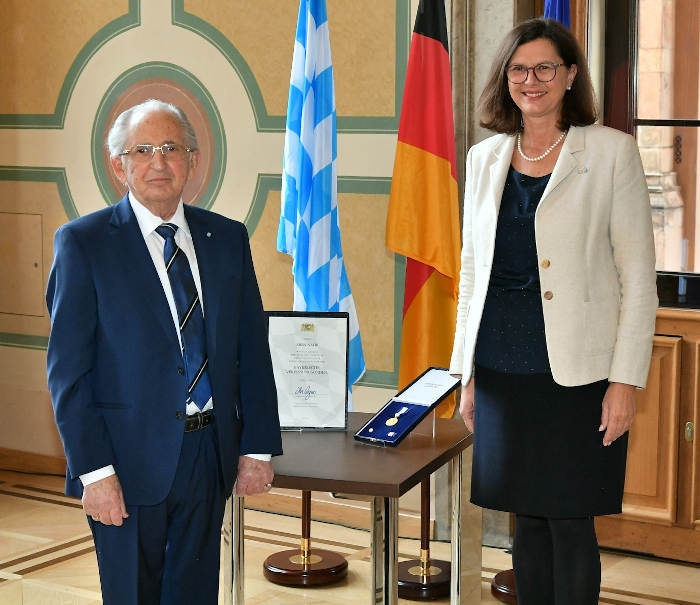 Image: Bildarchiv Bayerischer Landtag Rolf PossFrom the Süddeutsche Zeitung 9. december 2021:
Image: Bildarchiv Bayerischer Landtag Rolf PossFrom the Süddeutsche Zeitung 9. december 2021:
Award:« We are a small people and need friends»
By Anna Schwarz, Dachau
Holocaust survivor Abba Naor was the first to receive the new constitutional order of the Bavarian state parliament on Wednesday. State Parliament President Ilse Aigner (CSU) honoured the 93-year-old in a festive setting in the presence of Israel's Consul General Carmela Shamir, State Parliament Vice President and Bavarian Memorial Foundation Director Karl Freller and the Presidium.

2 mai
1 mai
29 April 2021,
Images at the memorial
{slider_wd id=9}
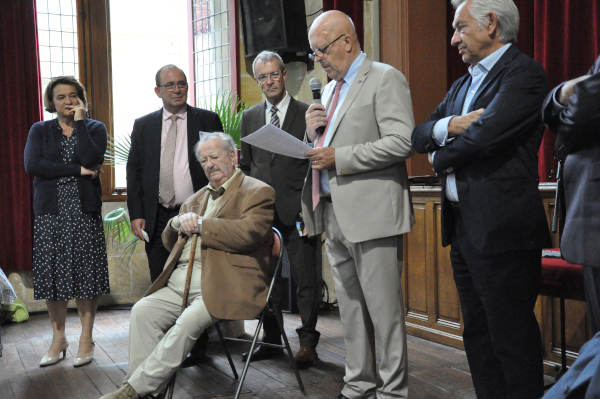
Sarlat 27 September 2019.
The Prize of General André Delpech honours the merits of those who have particularly devoted themselves to the objectives of the CID, the International Committee of Dachau, either directly for the memory of the deportation in this camp, or more broadly by fighting against fascism, racism and antisemitism and against any other discrimination on political and religious grounds.